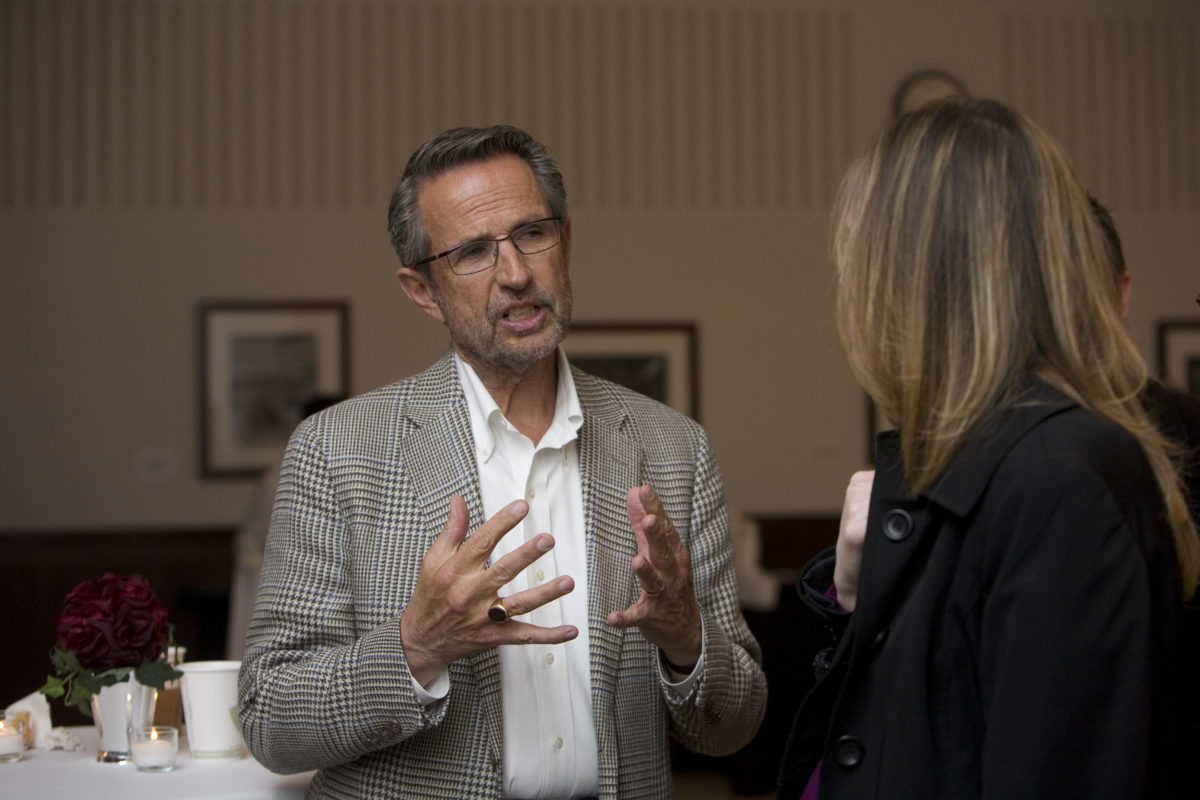Leadership privilege: Challenged for maximum impact
- April 23, 2018
- By WashU Olin Business School
- 3 minute read

Jamie Semler, BSBA 2018, wrote this post on behalf of the Bauer Leadership Center.
“Are you prepared to be a leader?”
As an undergraduate business school student, I have been taught the technical skills and knowledge needed to excel in my career and the fundamental aspects of management and professionalism. The emphasis in my coursework on data-based decision making and evaluation of success through numerical measures and ratios has prepared me to be a valuable future manager in any organization.
Yet, as Bob Chapman—chairman and CEO of Barry-Wehmiller Group—challenges us to answer the question above, I am forced to think about the ways in which my education and experiences have contributed to or fallen short of preparing me for my career.
In describing his experiences and leadership philosophy, often termed “Truly Human Leadership,” Bob helped us all attempt to think about and answer the above question and left us with some key takeaways about being an impactful leader:
Taking responsibility for other people’s lives
Bob’s realization of the profound impact leaders have on those that they lead has spurred his belief that leaders are responsible for being stewards for the people they lead. Through his experiences at Barry-Wehmiller he has seen the effect his actions as a leader have had on the health, family life, and work satisfaction/enjoyment of his employees.
Having the courage to care
The main principle underlying Bob’s leadership style is the importance of showing that you care about those who you are leading. This idea is best explained by Bob’s statement that “the greatest thing you can do as a leader is let people know they matter.”
In order to show appreciation for his employees, he has created a guiding principles award aimed at recognizing and rewarding those who exemplify leadership and company values, as nominated by their peers. The emotional responses to getting the award demonstrate the impact this type of leadership tactic has on the morale of the employees.
Defining success
By measuring success by how he touches the lives of people, rather than solely by economic figures, Bob has created an environment that shows that he takes an interest in his employees. The way in which he handled the economic downturn of 2009 shows that he places importance on the lives of the people.
Instead of laying people off, which would severely affect the lives of many people, he decided that since he measures success by the way he touches people’s lives, he would not fire anyone and instead ask people to take a one month unpaid vacation, so that everyone suffered a little loss, but no one suffered a complete loss.
Understanding the importance of business strategy
Although Bob puts much emphasis on being good to his people, he also notes the importance of having a strong business model in order to be able to support the them. In talking about some key aspects of a strong business model, he emphasizes the importance of focusing on cash, growth through organic means and acquisitions, developing a sustainable model that balances markets and customers, and building a board of directors that you respect and who will challenge your thinking.
Media inquiries
For assistance with media inquiries and to find faculty experts, please contact Washington University Marketing & Communications.
Monday–Friday, 8:30 to 5 p.m.
Sara Savat
Senior News Director, Business and Social Sciences
